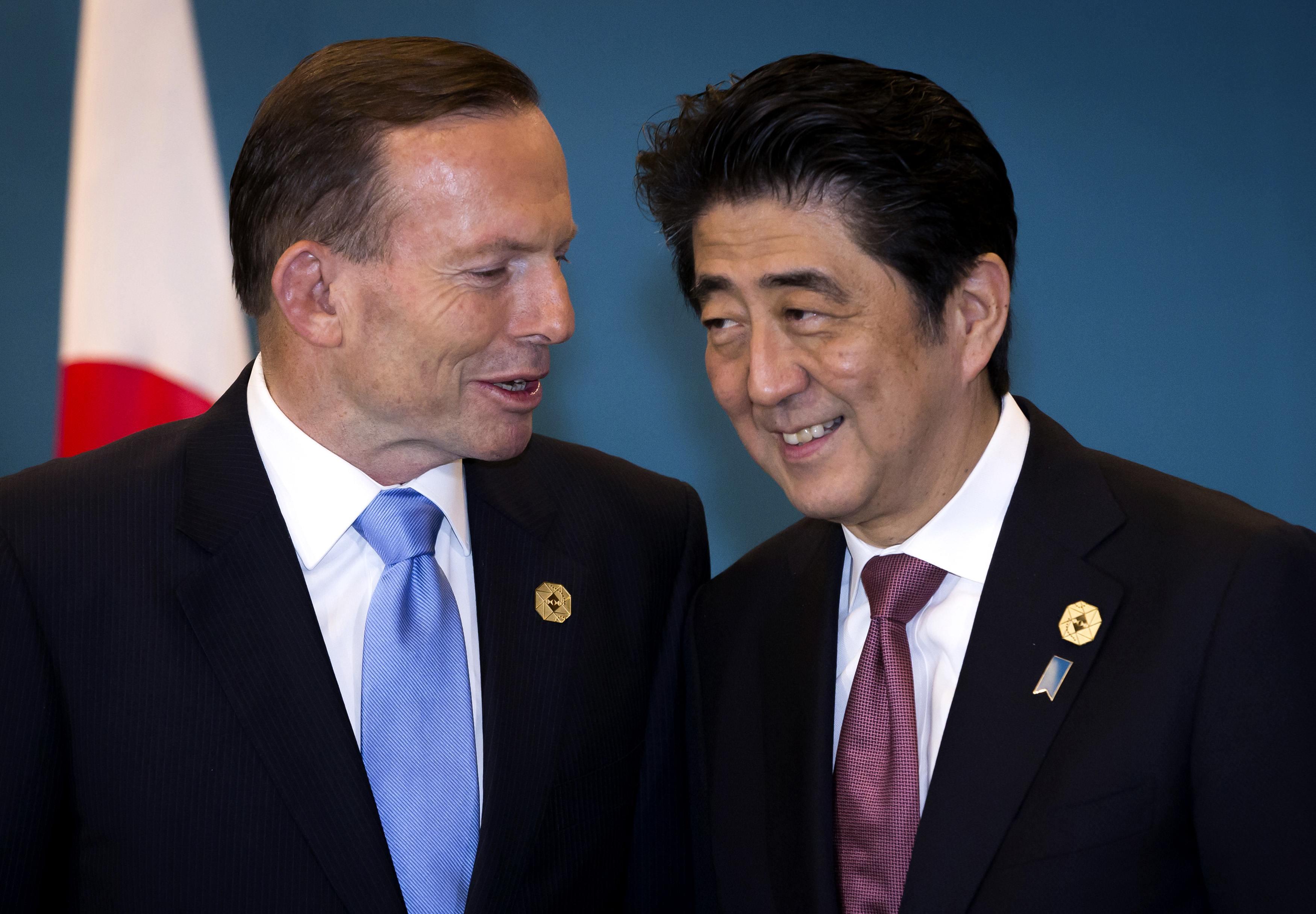Japan Slips Into Surprise Recession, Paves Way For Tax Delay, Snap Poll
Gross domestic product (GDP) fell at an annualised 1.6 percent pace in July-September

Gross domestic product (GDP) fell at an annualised 1.6 percent pace in July-September
Bareksa.com - Japan's economy unexpectedly slipped into recession in the third quarter, setting the stage for Prime Minister Shinzo Abe to delay an unpopular sales tax hike and call a snap election half-way through his term.
Gross domestic product (GDP) fell at an annualised 1.6 percent pace in July-September, after it plunged 7.3 percent in the second quarter following a rise in the national sales tax, which clobbered consumer spending.
The world's third-largest economy had been forecast to rebound by 2.1 percent in the third quarter, but consumption, and exports remained weak, saddling companies with huge inventories to work off.
Promo Terbaru di Bareksa
Abe had said he would look at the data when deciding whether to press ahead with a second increase in the sales tax to 10 percent in October next year, as part of a plan to curb Japan's huge public debt, the worst among advanced nations.
Japanese media have said the prime minister, who returns from an Asia tour on Monday, could announce his decision to delay the hike as early as Tuesday and state his intention to call an election for parliament's lower house, which ruling party lawmakers expect to be held on Dec. 14.
An economic adviser to Abe termed the economic slide "shocking," and urged the government to consider steps to support the economy.
"This is absolutely not a situation in which we should be debating an increase in the consumption tax," Etsuro Honda, a University of Shizuoka professor and a prominent outside architect of Abe's reflationary policies, told Reuters.
No election for parliament's powerful lower house need be held until late 2016, but political insiders say Abe wants to lock in his mandate while his ratings are still relatively robust, helping him push ahead with economic and other policies such a controversial shift away from Japan's post-war pacifism.
Facing a divided and weak opposition, Abe's Liberal Democratic Party (LDP) is expected to keep its majority in the lower house, but it could well lose seats. As election talk heated up last week, a poll by NHK public TV found that Abe's voter support had fallen 8 percentage points to 44 percent from a month earlier.
A senior LDP lawmaker said the data made Abe's decision to postpone the tax hike certain and that he expected the premier to call a snap poll, arguing that his "Abenomics" strategy to re-energise the economy was working but needed more time.
"For sure, minus 1.6 percent is not good, but if you look at individual indicators, things are beginning to turn up," the lawmaker told Reuters.
"The prime minister feels strongly that he wants to make certain of the economic trend so I think he will put off the sales tax rise from next October," he said.
Even before the GDP announcement, Abe appeared to suggest he was leaning toward delaying the tax hike, telling reporters travelling with him in Australia that raising the tax rate would be meaningless if deflation returned.
CONSUMPTION STAGNANT
The yen slipped on the poor GDP reading, with the dollar briefly pushing to a seven-year high above 117 yen. The benchmark Nikkei stock average fell 2.6 percent.
Sluggish growth and downward pressure on inflation due to sliding global oil prices prompted the Bank of Japan to unexpectedly expand its massive monetary stimulus last month.
Abe inherited the sales tax plan when he took power in December 2012, pledging to revive the economy with his "Abenomics" mix of ultra-easy monetary policy, spending and reforms.
The LDP, its smaller ally and the then-ruling Democratic Party enacted the legislation requiring the tax to be raised unless economic conditions were judged too weak.
Economy Minister Akira Amari said the GDP data showed the April hike to 8 percent from 5 percent had made it harder than anticipated for the public to shake off their deflationary mindset.
Household spending is stagnating, with housing investment and corporate capital spending down, Amari said, while finding a bright spot in strong corporate profits.
On a quarter-on-quarter basis, the economy shrank 0.4 percent in the third quarter, following a contraction of 1.8 percent in the second quarter. Recessions are typically defined as two or more consecutive quarters of economic contraction.
Private consumption, accounting for about 60 percent of the economy, rose 0.4 percent from the previous quarter, half as much as expected.
Some economists, however, said growth could improve in the October-December quarter.
"If you look at other fundamental indicators, they've shifted over to an increasing trend, so if this continues ... the next quarter should be better," said Junko Nishioka, chief economist at RBS Securities Japan. (Source : Reuters)
Pilihan Investasi di Bareksa
Klik produk untuk lihat lebih detail.
| Produk Eksklusif | Harga/Unit | 1 Bulan | 6 Bulan | YTD | 1 Tahun | 3 Tahun | 5 Tahun |
|---|---|---|---|---|---|---|---|
Trimegah Dana Obligasi Nusantara autodebet | 1.201,44 | ||||||
STAR Stable Amanah Sukuk autodebet | 1.181,6 | - | - | ||||
Syailendra Sharia Fixed Income Fund Kelas A | 1.152,06 | - | - | ||||
Eastspring Syariah Mixed Asset Fund Kelas A | 1.047,01 | - | - | - | - | - |

Produk Belum Tersedia
Ayo daftar Bareksa SBN sekarang untuk bertransaksi ketika periode pembelian dibuka.

Produk Belum Tersedia
Ayo daftar Bareksa SBN sekarang untuk bertransaksi ketika periode pembelian dibuka.